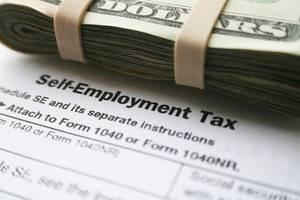Recent Blog Posts
Taxpayers with Unreported Foreign Assets Urged to Use Voluntary Disclosure Program or Face Serious Repercussions
 The IRS will soon be ending its Offshore Voluntary Disclosure Program for undisclosed foreign assets. Failure to utilize this disclosure program by the date of its termination on September 28, 2018, means that taxpayers who have not reported foreign assets can no longer do so with assurance of avoiding criminal prosecution.
The IRS will soon be ending its Offshore Voluntary Disclosure Program for undisclosed foreign assets. Failure to utilize this disclosure program by the date of its termination on September 28, 2018, means that taxpayers who have not reported foreign assets can no longer do so with assurance of avoiding criminal prosecution.
What is the Offshore Voluntary Disclosure Program?
The Offshore Voluntary Disclosure Program (OVDP) was developed as a way for taxpayers to come into compliance with fewer legal consequences in situations where the taxpayer had previously not disclosed foreign assets and the income generated on those assets. The OVDP has existed in some iteration since 2009.
What is Section 965 Transition Tax?
 The tax laws in the United States are complex and ever-changing. As the Internal Revenue Service (IRS) works to ensure that taxpayers are paying their fair share, the agency regularly announces compliance campaigns to address new issues that arise. Recently, the Large Business & International (LB&I) division of the IRS noted several areas it would be focusing on, and one notable compliance campaign involves taxes on foreign earnings under Code Section 965.
The tax laws in the United States are complex and ever-changing. As the Internal Revenue Service (IRS) works to ensure that taxpayers are paying their fair share, the agency regularly announces compliance campaigns to address new issues that arise. Recently, the Large Business & International (LB&I) division of the IRS noted several areas it would be focusing on, and one notable compliance campaign involves taxes on foreign earnings under Code Section 965.
Transition Taxes on Repatriated Foreign Earnings
Section 965 of the Internal Revenue Code requires taxpayers who are shareholders in certain foreign corporations to pay a transition tax on foreign earnings when these earnings are repatriated to the United States. Depending on the profits and losses of the foreign corporations taxpayers hold shares in, they may be able to reduce the amount of these earnings that are included in their income. The transition tax rates are 15.5 percent for inclusions equal to the taxpayer’s aggregate foreign cash position and 8 percent for gross income above that amount.
Compliance With IRS Requirements Regarding Virtual Currency
 Over the last few years, more and more people have begun to invest in virtual currencies such as Bitcoin, use them to pay for goods and services, and exchange them with others. However, even though the use of cryptocurrencies has increased, many people have not been properly reporting these virtual currencies on their taxes. In fact, out of the 132 million electronically filed tax returns in 2016, only 802 reported virtual currency income. This activity has not escaped the notice of the IRS, and the agency is looking to enforce tax laws on virtual currencies.
Over the last few years, more and more people have begun to invest in virtual currencies such as Bitcoin, use them to pay for goods and services, and exchange them with others. However, even though the use of cryptocurrencies has increased, many people have not been properly reporting these virtual currencies on their taxes. In fact, out of the 132 million electronically filed tax returns in 2016, only 802 reported virtual currency income. This activity has not escaped the notice of the IRS, and the agency is looking to enforce tax laws on virtual currencies.
IRS Compliance for Cryptocurrencies
The IRS’s Large Business & International (LB&I) division recently identified virtual currencies as one of five new compliance campaigns it will be conducting. The LB&I division will begin using outreach to educate taxpayers about their requirements for reporting income from virtual currencies, as well as examinations (audits) of taxpayers who do not correctly report income.
LB&I Division of the IRS Announces Newest Group of Compliance Campaigns
 The Large Business & International (LB&I) division of the IRS has announced several new compliance campaigns that signal where the IRS will allocate its audit resources. If you are a business owner concerned about the ramifications of a tax audit, it is advisable that you contact a qualified business tax attorney who can give you customized legal support.
The Large Business & International (LB&I) division of the IRS has announced several new compliance campaigns that signal where the IRS will allocate its audit resources. If you are a business owner concerned about the ramifications of a tax audit, it is advisable that you contact a qualified business tax attorney who can give you customized legal support.
What is an IRS Compliance Campaign?
The LB&I division of the IRS creates compliance campaigns in an effort to keep taxpayer examinations centered on issues. These campaigns, which are rolled out periodically, are meant to zero in on areas that present the greatest risk of non-compliance.
What Are My Self-Employed Tax Obligations?
 While no one enjoys doing so, everyone has to pay taxes. For many people, taxes are automatically withheld from their paychecks by their employer, and their primary concern is filing their annual tax return. However, paying taxes can become more complicated for small business owners and those who are self-employed. These individuals should be sure to understand the best way to meet their tax obligations in a way that allows them to maintain financial security.
While no one enjoys doing so, everyone has to pay taxes. For many people, taxes are automatically withheld from their paychecks by their employer, and their primary concern is filing their annual tax return. However, paying taxes can become more complicated for small business owners and those who are self-employed. These individuals should be sure to understand the best way to meet their tax obligations in a way that allows them to maintain financial security.
Concerns for Self-Employed Taxpayers
A person is considered self-employed if he or she is the owner of a sole proprietorship, if he or she works as an independent contractor, or if he or she otherwise operates his or her own business. People who are self-employed will not only need to file an annual tax return if they earn a net income of at least $400 in a year, but they must also make estimated tax payments on a quarterly basis.
How Do I Report Suspected Tax Fraud Activity?
 Tax fraud is common in the United States; however, this type of activity often goes unreported or undiscovered. Tax fraud not only affects the government’s ability to obtain funds used to provide essential services to citizens, but fraud can also take the form of tax scams that seriously harm many individuals. If you suspect that a person, business, or organization is committing tax fraud, you should understand the steps you can take to report this fraud to the IRS.
Tax fraud is common in the United States; however, this type of activity often goes unreported or undiscovered. Tax fraud not only affects the government’s ability to obtain funds used to provide essential services to citizens, but fraud can also take the form of tax scams that seriously harm many individuals. If you suspect that a person, business, or organization is committing tax fraud, you should understand the steps you can take to report this fraud to the IRS.
Reporting Tax Fraud
Depending on the type of fraud, there are different methods of reporting information to the IRS:
-
To report an individual or business that fails to pay taxes, improperly withholds taxes, claims false deductions or exemptions, does not report income, or files false tax returns, use Form 3949-A (Information Referral). As much relevant information as possible should be included, such as the name and address of the offender, his or her Social Security number or tax identification number, and a description of the violation that includes the time period during which it occurred and the amount of income that was not reported or taxed correctly. While you are not required to identify yourself, the IRS encourages you to do so, and you may be asked to serve as a witness if the tax evasion case goes to trial.
Reminder: The IRS is Ending the Offshore Voluntary Disclosure Program
 U.S. taxpayers who own assets held in foreign countries are required to report the assets to the Internal Revenue Service (IRS) and pay taxes on income from the assets. For taxpayers who have not met their reporting requirements, the IRS has provided a variety of methods for compliance, including the Offshore Voluntary Disclosure Program (OVDP). However, the IRS has announced that the OVDP will end September 28, 2018.
U.S. taxpayers who own assets held in foreign countries are required to report the assets to the Internal Revenue Service (IRS) and pay taxes on income from the assets. For taxpayers who have not met their reporting requirements, the IRS has provided a variety of methods for compliance, including the Offshore Voluntary Disclosure Program (OVDP). However, the IRS has announced that the OVDP will end September 28, 2018.
Offshore Tax Compliance Options
The current version of the OVDP, which was instituted in 2014, allows taxpayers with undisclosed foreign assets to become compliant with IRS requirements, thus minimizing the civil penalties they are required to pay and avoiding the possibility of criminal prosecution for tax evasion. This program is meant to allow those who have willfully failed to report foreign assets to achieve compliance and pay any taxes that are owed, as well as applicable penalties.
Requesting a Tax Appeal: Filing a Written Protest
 People and organizations can violate tax laws in the United States in a variety of ways, thus leading to disputes with the Internal Revenue Service (IRS) regarding tax assessments, collections, or other issues. After the IRS makes a decision following an audit or sends a notice of a collection action, taxpayers may be able to contest the decision through the IRS Office of Appeals. One method to begin the tax appeal process is by filing a written protest.
People and organizations can violate tax laws in the United States in a variety of ways, thus leading to disputes with the Internal Revenue Service (IRS) regarding tax assessments, collections, or other issues. After the IRS makes a decision following an audit or sends a notice of a collection action, taxpayers may be able to contest the decision through the IRS Office of Appeals. One method to begin the tax appeal process is by filing a written protest.
Requirements for a Written Protest
When the IRS makes a decision about the taxes a person owes or the methods of collecting payments, it will send a notice to the taxpayer. The taxpayer can then file a formal written protest that should include the following information:
- The taxpayer’s name and address, and a phone number indicating where he or she can be reached during the daytime;
What is an Abusive Tax Scheme?
 Every person must pay taxes. No matter one’s job, income level, or the amount of assets owned, most people are unhappy with the amount that the government takes. But while there are many ways to legally minimize the amount of taxes a person is obligated to pay, some people take additional, illegal steps to evade paying taxes.
Every person must pay taxes. No matter one’s job, income level, or the amount of assets owned, most people are unhappy with the amount that the government takes. But while there are many ways to legally minimize the amount of taxes a person is obligated to pay, some people take additional, illegal steps to evade paying taxes.
Tax fraud is a crime that can result in serious consequences; however, many people also fall prey to tax scams that promise to substantially reduce or completely eliminate the taxes a person must pay. In order to avoid criminal prosecution for tax evasion, it is important to recognize and avoid these abusive tax schemes.
Types of Abusive Tax Schemes
The IRS defines an abusive tax scheme as a violation of the Internal Revenue Code that uses multiple flow-through entities to evade taxes. Common types of abusive tax schemes include the following:
How California’s Supreme Court Ruling Will Affect the Gig Economy
 In today’s economy, millions of people across the United States act as freelance workers, either as a primary job or as a way to supplement income. The digital tools available to companies and workers in the gig economy allow many people to earn an income by transporting passengers, renting property to travelers, or performing a variety of other tasks.
In today’s economy, millions of people across the United States act as freelance workers, either as a primary job or as a way to supplement income. The digital tools available to companies and workers in the gig economy allow many people to earn an income by transporting passengers, renting property to travelers, or performing a variety of other tasks.
While many people and companies have benefited from the sharing economy, the increased prevalence of this type of labor has raised a variety of legal issues as employees seek to receive fair compensation and government entities ensure that taxes are applied correctly.
A recent ruling by the California Supreme Court will have a significant impact on gig economy workers and employers, affecting issues such as employee classification and taxes.









